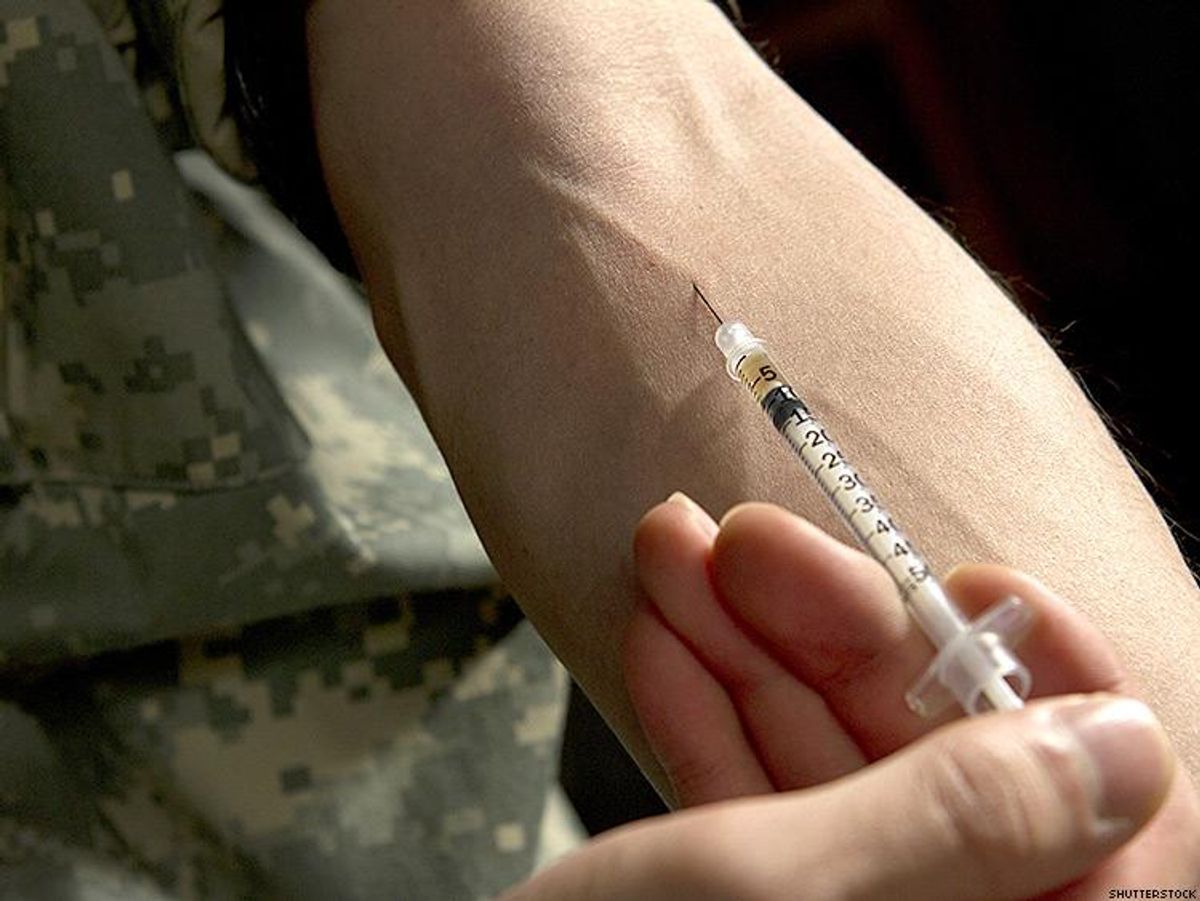Have political victories and Supreme Court rulings made serving in the military safer for gay, lesbian, bisexual, and transgender people? Even President Obama's nomination of Eric Fanning as secretary of the Army, the first openly gay man to have such a high-profile position, does not mean the fight for equality in the armed forces is over.
If anything, the repeal of "don't ask, don't tell" marks the dangerous beginning of "who cares?" in which active members of the military who also happen to be LGBT are on their own.
The United States Department of Defense, hardly a progressive institution given its history of racial segregation and open hostility to gays and lesbians, does not make even the slightest provision -- its rhetoric is, at best, cold and uninviting -- concerning the stigma and negative stereotypes that LGBT soldiers, sailors, Marines, pilots, and officers routinely face.
Take, for instance, the struggles of a Navy veteran whose experience is a case study in depression and addiction. His colleagues "discovered" his cache of gay pornography, resulting in this harrowing summary:
"One night while taking the trash out in pitch-black vision I was at the bow of the ship, with the ship swaying heavily from the high seas, when I turned around and could only see bright cigarette cherries right in front of my face. A voice spoke out 'You know, you queer -- you could get thrown overboard and no one would know or care.'"
Bottom line: America's veterans, gay and straight, will come home as wounded warriors of some kind or another. The difference for the former is that there is scant recognition of the dangers confronting this group of people, save a two-page Fact Sheet on LGBT Veteran Health Care from the U.S. Department of Veterans Affairs.
Consider too the following text from the VA: "The VA is developing policies, provider-education programs, and services to ensure high-quality patient-centered care for LGBT Veterans."
That statement is a future-based assertion, not a robust existing policy that the VA chooses to promote (because there is not much to publicize), while LGBT enlistees and veterans face their most formidable foe: the statistics regarding addiction, and drug and alcohol abuse.
According to the Center for American Progress ("Why the Gay and Transgender Population Experiences Higher Rates of Substance Use"), 25 percent of gay and transgender suffer from alcoholism, compared to 5 to 10 percent of the general population.
More alarming is the fact that gay men are 12.2 times more likely to use some kind of methamphetamine than men who do not have sex with other men. This group is also 9.5 times more likely to use heroin than men who do not have sex with other men. These numbers are shameful because we have the means to reduce these casualties of war.
Victimized by "friendly fire," so to speak, in which LGBT military inductees face decades of institutionalized hatred from heterosexual drill sergeants and recruits, silence by gay and lesbian service members about their lives equals survival from a platoon's famed "band of brothers." The subsequent turn to self-medication, by way of alcohol and drugs, should neither surprise nor confuse us. The reasons for this epidemic of addiction are clear, since the causes of this crisis are unambiguous.
LGBT veterans deserve more than lip service from the VA because they must receive customized care to overcome the twin forces of alcohol and drugs. Having served with honor and distinction, and despite fears of reprisals and rejection from their fellow patriots at home and abroad, now is the time for healing.
Now is the time for treatment of addiction. Now is the time for personalized treatment for LGBT veterans.
 MANNY RODRIGUEZ is the executive director of La Fuente Hollywood Treatment Center.
MANNY RODRIGUEZ is the executive director of La Fuente Hollywood Treatment Center.
































 MANNY RODRIGUEZ is the executive director of
MANNY RODRIGUEZ is the executive director of 


















































